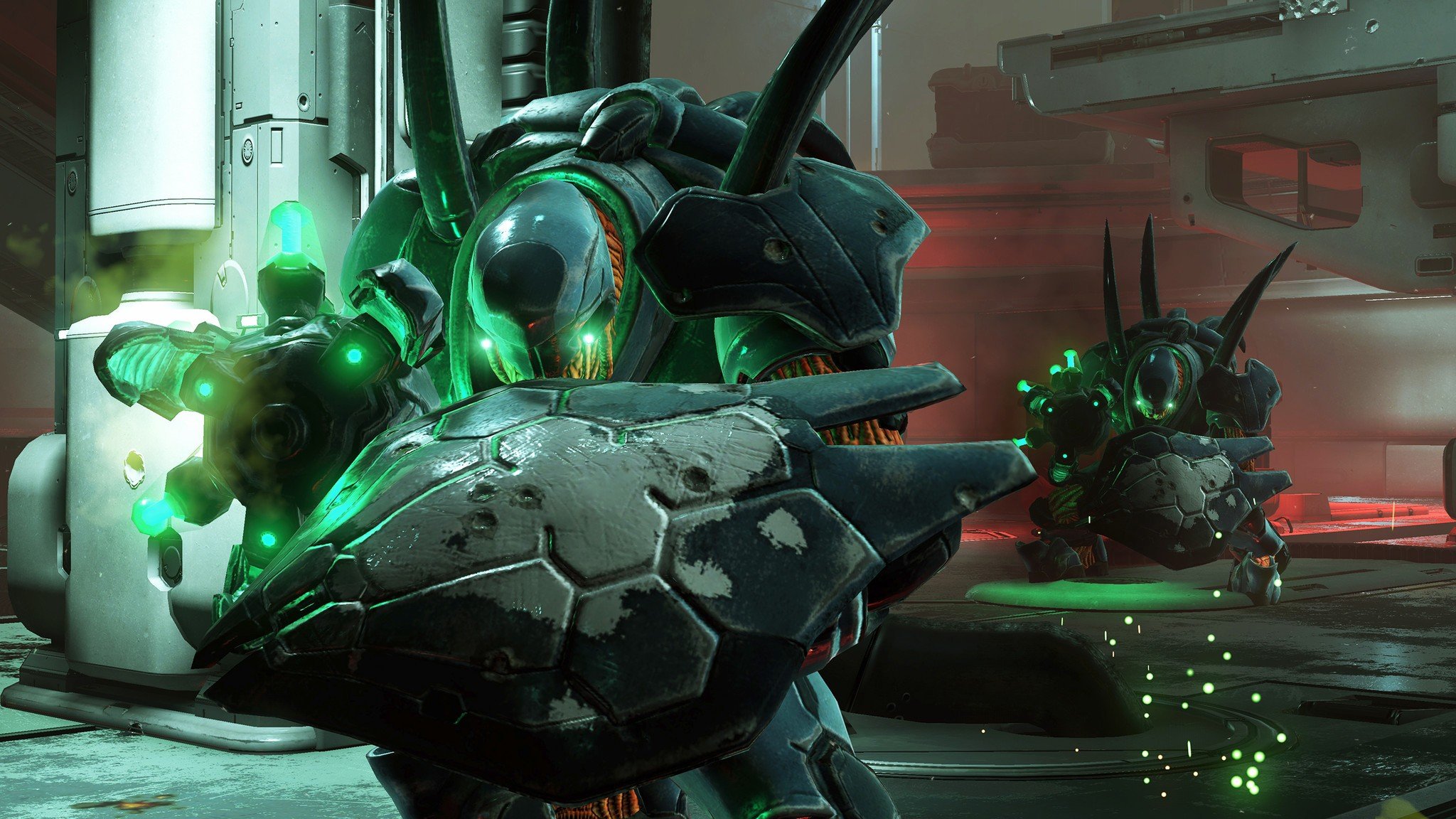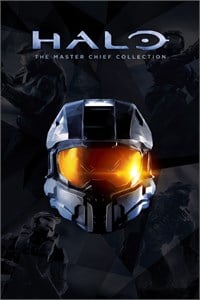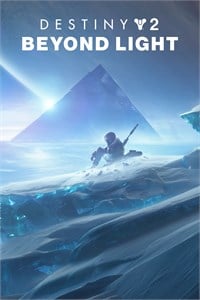Former Halo artist details the design history of the Hunters
The creative process behind the Covenant's shock troopers has been revealed.
All the latest news, reviews, and guides for Windows and Xbox diehards.
You are now subscribed
Your newsletter sign-up was successful
If you ask a Halo fan what they think the most intimidating enemy in the series is, there's a very good chance that they'll bring up the Covenant Hunter. Covered head-to-toe in thick armor, equipped with a massive shield and fuel rod cannon, and several feet taller than the Master Chief, the Hunters are no doubt one of the most dangerous threats you can run into across the Halo games. But what facilitated their addition to the series, and how did the creative minds at Bungie design such an enemy in the first place?
These questions have largely remained unanswered for over a decade — that is, until now. Former Halo artist and current Destiny 2 art director Shi Kai Wang recently took to Twitter to share several details about how the Hunters were conceptualized, mocked up, and eventually added into Halo: Combat Evolved.
(1/8)It's been awhile, let's get back to super serious stuff, like some #halo characters. Let's talk about the hunters today, which I was fortunate enough to help bring to life. pic.twitter.com/5F3K9OehKd(1/8)It's been awhile, let's get back to super serious stuff, like some #halo characters. Let's talk about the hunters today, which I was fortunate enough to help bring to life. pic.twitter.com/5F3K9OehKd— Shiek Wang 王峙凱 (@shiekthegeek) March 23, 2021March 23, 2021
As it turns out, the creation of the Hunter enemy was facilitated by a need to balance out the agility of the Elites, the medium-range nature of the Jackals, and the close-quarters threat of the Grunts with a heavy trooper. This sandbox necessity is what helped Bungie's artists envision what the Hunter would look like in the game.
With the idea of a big and heavy in mind, Wang got to work sketching out some ideas. Initially, the designs were inspired by several anime references like Hy-Gogg from Gundam's War in the Pocket series. Over time, though, Wang and his colleagues pivoted to a more biological design, with the fiddler crab and its massive left claw serving as the primary inspiration for the Hunter.
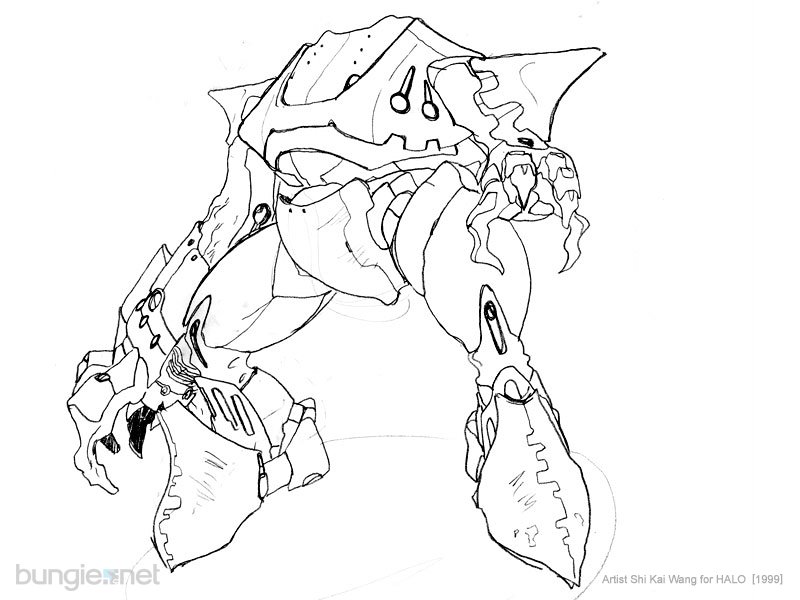
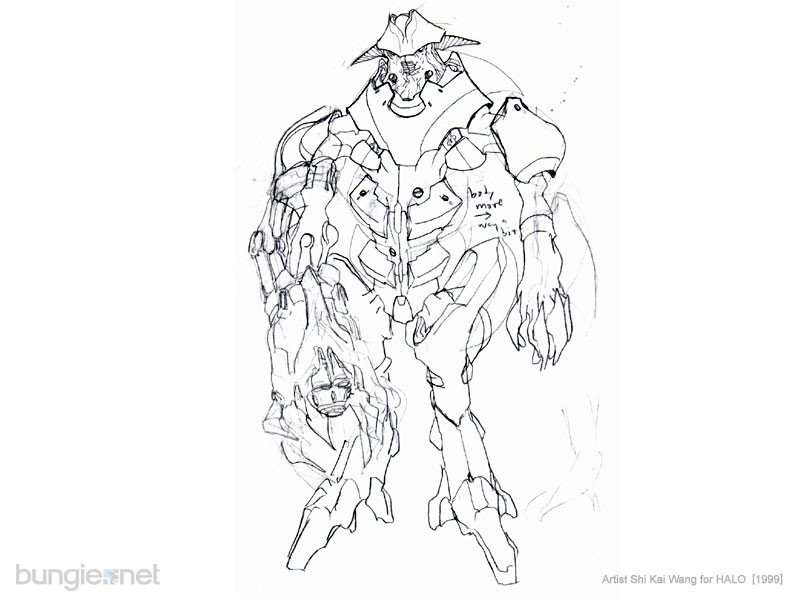
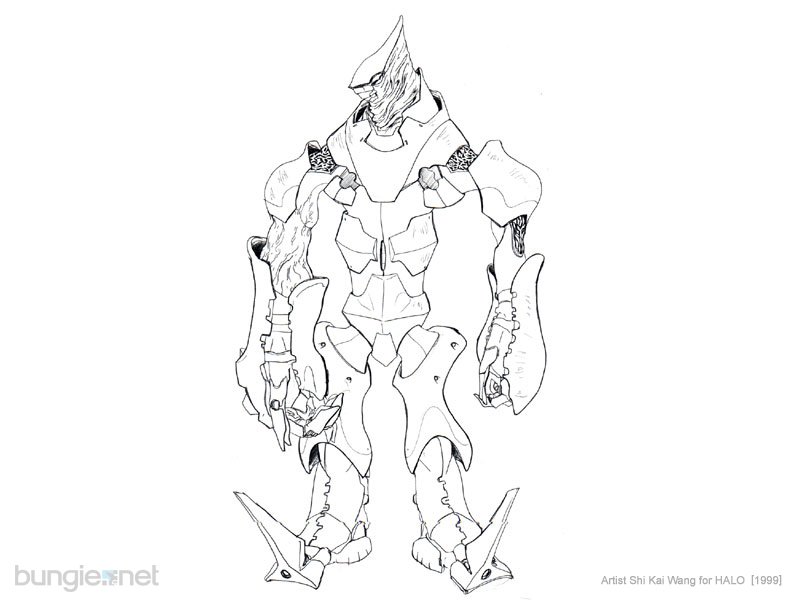
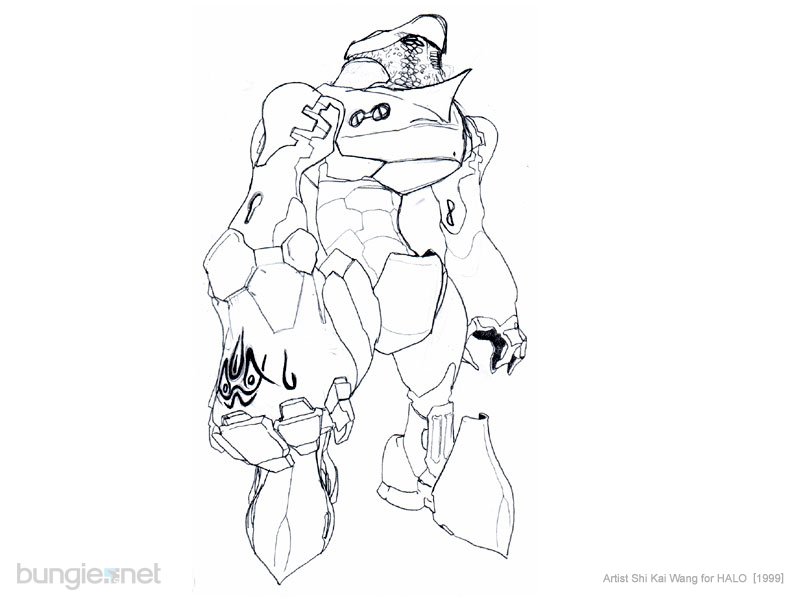
Halo fans who have dabbled in the extended lore to some degree will know that Hunters are not a single entity like the other Covenant aliens are; rather, they're a collective of individual worms that come together within their suit of armor to form a whole being.
According to Wang, this idea was inspired by a cellular automata engine tool made by Jason Jones (another former Halo developer), and a note he made in his sketchbook about it ended up serving as the foundation for the lore of what the Hunters are in the Halo universe.
As the design neared its final state, the artists wanted to ensure that there was a clear visual difference between the Hunter's combat and non-combat stances. Therefore, the Hunters were given a curved torso that they could collapse behind their large melee arm for protection, which clearly signals when the Hunter is in action. The Hunter's iconic back spikes were then added by Paul Russel, another former Halo artist, and the giant shield and fuel rod cannon were added after playtesting. Following this, the Hunter's finalized design was completed, leaving Hunters to become a fan-favorite in the Halo games.
All the latest news, reviews, and guides for Windows and Xbox diehards.
I really loved getting this insight from Wang, with Hunters one of the most creative enemies in the series. They're a personal second favorite foe in Halo (just behind the Elites), with impressive concepts behind these hulking heavy troops.
It's also interesting to see how the design of the Hunters has been altered over the years with traits like additional armor plates, shifting colors and textures, and new types of weaponry. 343 Industries has embraced the "worm collective" idea too, as in Halo 5, you can often spot the worms getting into the suits of Hunter armor, which is simply awesome.
Do you like the Hunters, and did you find it interesting to see the process of how they were designed? Let me know. If you're looking to see these guys in-game while waiting for Halo Infinite, don't miss Halo: The Master Chief Collection, which bundles all of the pre-Xbox One-era Halo shooters together for an awesome $40 price. It's easily one of the best Xbox One shooters available, so don't miss out on it.

Brendan Lowry is a Windows Central writer and Oakland University graduate with a burning passion for video games, of which he's been an avid fan since childhood. He's been writing for Team WC since the summer of 2017, and you'll find him doing news, editorials, reviews, and general coverage on everything gaming, Xbox, and Windows PC. His favorite game of all time is probably NieR: Automata, though Elden Ring, Fallout: New Vegas, and Team Fortress 2 are in the running, too. When he's not writing or gaming, there's a good chance he's either watching an interesting new movie or TV show or actually going outside for once. Follow him on X (Twitter).
